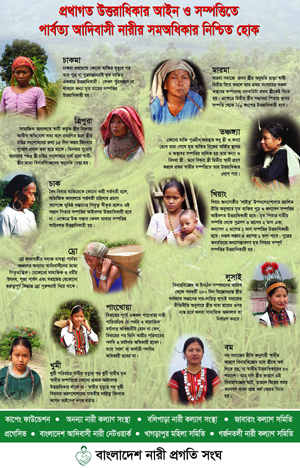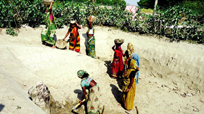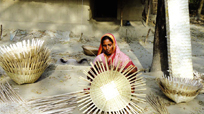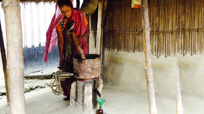 |
|||||||||||
| Gender, Advocacy and Leadership Development Training for Indigenous Women of Chittagong Hill Tracts (CHT) |
||||||||||||||||||||||||||||||||||||||||||||||||||||||||||||||||||||
|
||||||||||||||||||||||||||||||||||||||||||||||||||||||||||||||||||||
| 1-3 October 2013 | MORE NEWS | ||||||||||||||||||||||||||||||||||||||||||||||||||||||||||||||||||||
 |
||||||||||||||||||||||||||||||||||||||||||||||||||||||||||||||||||||
This training has been uniquely designed for CHT indigenous women working in different indigenous peoples organisations, CHT based indigenous women NGOs and network and youth women wing of political organization of the indigenous people of CHT. Using the gender justice framework to address structural cause of inequality and international and national women rights instruments, the training focused particularly on status of CHT Indigenous women in traditional ethnic laws and customs and their reproductive burden evolved from unpaid care work.
Background A misconception exists that matriarchy is the base of social order in CHT ethnic groups and so their women enjoy more autonomy in comparison to Bengali women which is merely a myth. A study commissioned by BNPS in 2011 on Status of CHT Indigenous women in Traditional Ethnic Laws and Customs revealed the realities of discriminations to women legitimated through customs and practices. Based on the study findings BNPS has been facilitating CHT women organisations in mobilising opinion and action on reformation of customary laws discriminatory to women through involving ethnic leaders, local MPs, political parties, human and women rights activists, peace activists and media. This advocacy is also included the following agenda recommended by women participated in FGDs conducted under the study:
Capacity building is a component of this intervention to foster this reform initiative. Objective BNPS believes that women, providing with certain enabling conditions, are able to not only articulate and access their rights but also able to emerge as leaders facilitating positive social changes. The objective of this particular training was to build capacity of women from different CHT organisations and institution to lead the process of challenging the structural mechanism of gender inequality and advancing indigenous women’s status in family and society. The aim was also to develop a network of participants to address the issues in a collective manner.
|
||||||||||||||||||||||||||||||||||||||||||||||||||||||||||||||||||||
 |
||||||||||||||||||||||||||||||||||||||||||||||||||||||||||||||||||||
Content Besides conceptual clarity on gender and women rights, the training offered necessary skills to become effective leaders in mobilizing, organising, raising awareness and advocating for women rights at all level with particular emphasis to the context of CHT indigenous communities. Thus the training enhanced participant’s conceptual understanding and built their skills towards effective activism and advocacy around women rights. Course component:
|
||||||||||||||||||||||||||||||||||||||||||||||||||||||||||||||||||||
 |
||||||||||||||||||||||||||||||||||||||||||||||||||||||||||||||||||||
Outputs Participants left the training with the capacity to:
Network building
Course Coordinator: Dilara Rekha, Coordinator, BNPS |
||||||||||||||||||||||||||||||||||||||||||||||||||||||||||||||||||||
|
||||||||||||||||||||||||||||||||||||||||||||||||||||||||||||||||||||
| United Nations | UN Women Watch | W8-Oxfam Novib | SAAPE | Bharat Kosh | Wikipedia (Bangla) | Find us on Facebook | © Copyright 2012. All rights reserved. |






